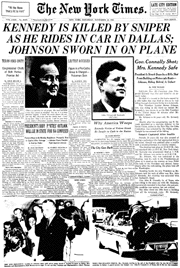Some cheery news from the Guardian…
An unlocked iPhone may become available in Germany as well as in France, leaving Britain with only the locked version of the Apple device on sale.
T-Mobile has the exclusive deal for Germany but, after Vodafone mounted a challenge in a Hamburg court, is understood to be considering also selling an unlocked iPhone, at a higher price.
Orange will offer the iPhone in France on November 29, abiding by French law and selling an unlocked version – expected to retail at well above the €399 (£286) Orange will charge to those customers who sign a long-term contract.
Britons have no option but to pay £269 for an iPhone from O2 and then sign an 18-month contract. There is unofficial software around which unlocks the device, but this voids the warranty. O2 said yesterday that it was confident its exclusive deal does not contravene UK or EU law. Vodafone said it did not intend a legal challenge in the UK.
UK consumers can go to France or Germany, buy an unlocked iPhone, and use it on their current network; O2, however, said some services, “visual voicemail” and text chat messaging, would not work.
Hmmm… I wonder if I can live without “visual voicemail”, whatever that is.
Thanks to Kevin Cryan for the link.




